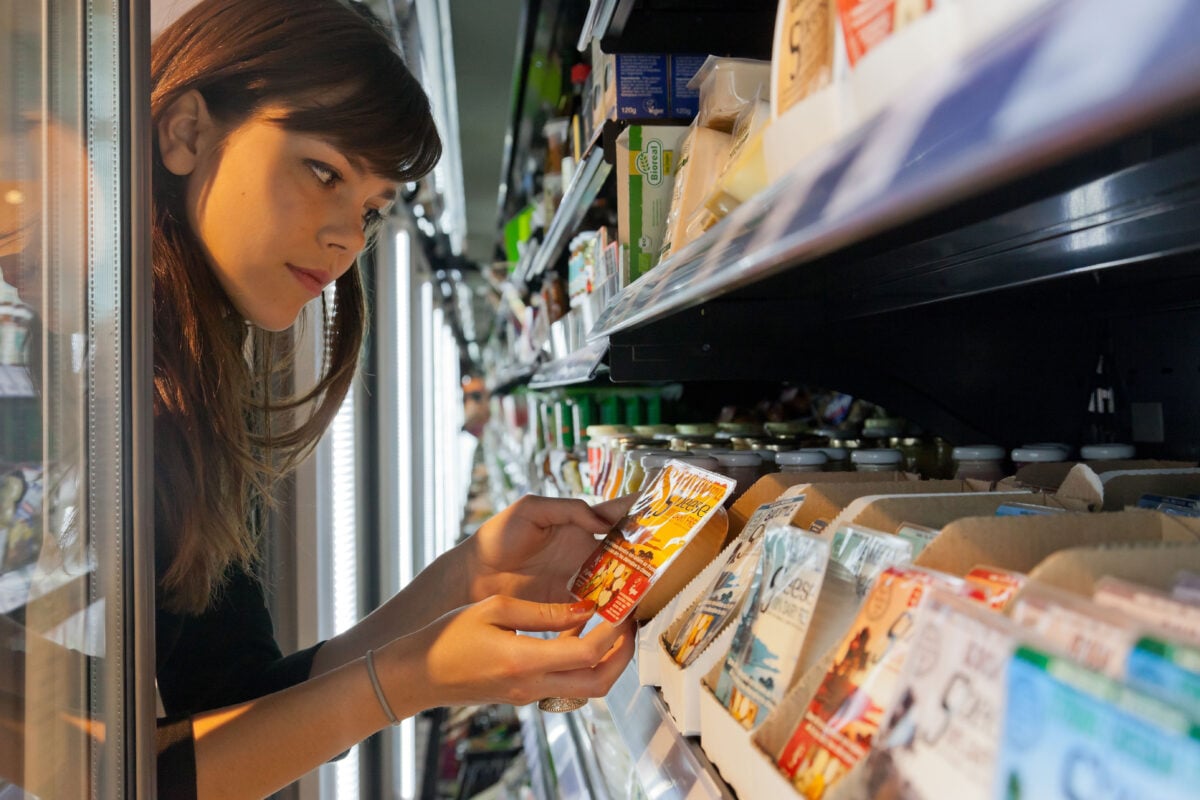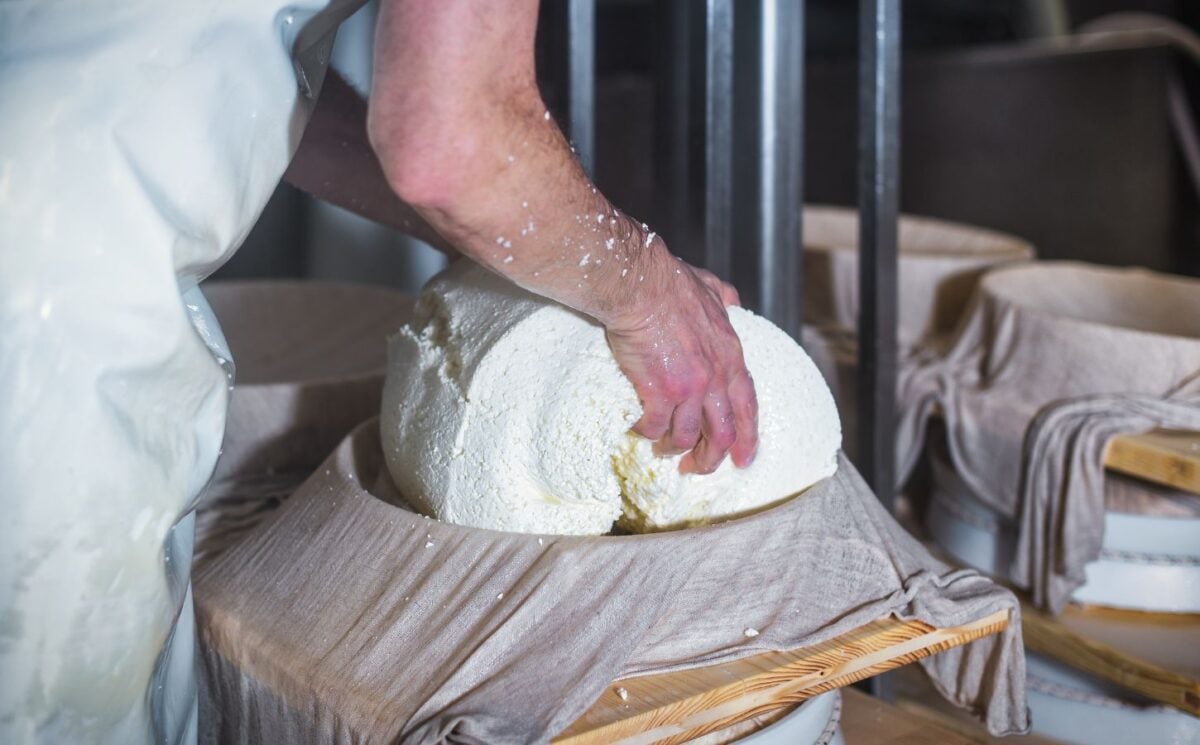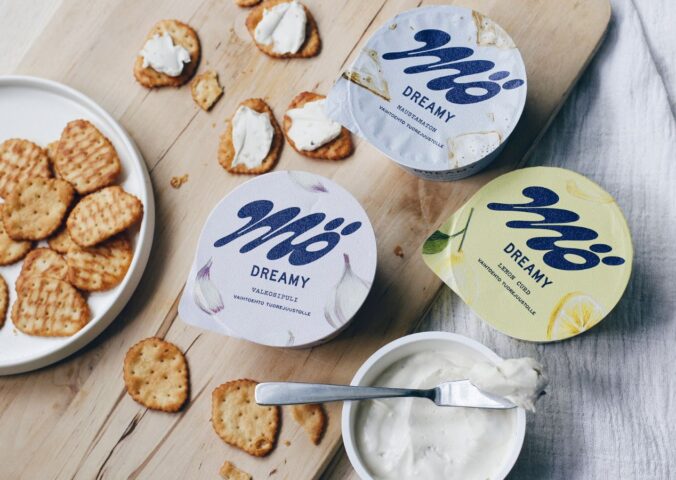For years, scientists have been trying to unlock the secret to making animal-free cheese taste and behave like its dairy counterpart.
Scientists from the Technical University of Denmark recently made a “breakthrough” that could transform dairy alternatives. In a study published earlier this month, the researchers succeeded in recreating a milk protein that is very close to the real thing.
Read more: Scientists Test Effect Of Fat And Protein Interactions On Vegan Cheese Texture
Apart from improving dairy alternatives, developing animal-free milk proteins could significantly reduce the dairy industry’s environmental footprint.
The science
Casein is the main protein in cow’s milk, and makes up around 80 percent of its total protein content. One of the greatest challenges in creating animal-free caseins that work adequately in food products is achieving the right chemical pattern, a process known as phosphorylation. This process adds phosphate groups to the caseins, which enables them to bind with calcium and form particles called micelles. Without phosphorylation, caseins don’t function like dairy-based proteins, and this is a major obstacle to producing quality cheese without real dairy.
For decades, animal-free caseins have been developed using precision fermentation, but achieving the correct phosphorylation pattern is a challenge. The Danish research team, however, succeeded in phosphorylating casein in engineered bacteria (E. coli). They also developed an alternative strategy that mimics the effects of phosphorylation by replacing certain building blocks of the protein known as serine residues.
The resulting caseins were similar to those from cow’s milk, particularly in terms of digestibility, structural stability, and their calcium-binding ability.
“The ability to produce phosphorylated recombinant caseins represents a transformative breakthrough in the alternative protein industry…This approach has significant implications for the development of alternative protein sources, addressing both sustainability and functional demands in the food industry,” the researchers noted in the study.
A sustainable breakthrough

The Danish study may not only improve animal-free dairy products, it could also help reduce our reliance on animal agriculture by offering a large-scale alternative to milk proteins.
In 2023, the global casein market was valued at USD $2.7 billion and its value is projected to skyrocket to USD $4.9 billion by 2033. Caseins are prized in the food and pharmaceutical industries for their versatility and biocompatibility. In food, they play a key role in foaming, emulsification, and stabilization. In pharmaceuticals, their ability to dissolve, form gels, and bind other substances makes them well-suited for drug formulation.
To meet the demand for casein-based products would require a significant increase in milk production. But animal-free caseins are a promising alternative that could lead to a more sustainable and ethical future for these industries.
Read more: Denmark Introduces ‘Plant-Based Diplomacy Initiative’






